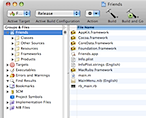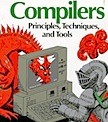When Ruby Inside started over two years ago, there were only a handful of sources for Ruby related news. The announcements on the ruby-talk mailing list (which Ruby Weekly News – now deceased – rounded up on the Web), del.icio.us, and a few popular Rubyists blogs (such as Why’s Redhanded). Now, however, there are lots of options, including Ruby Inside itself, Rails Inside, RubyFlow, Ruby Reddit, and Planet Ruby on Rails.
But what about the Ruby and Rails news for non-English speakers? I’ve been keeping my eye on a number of foreign-language Ruby and Rails news sites, and want to highlight some of the best:
Russia / Россия / русско
 RubyFlow.ru is a Russian equivalent of the English language RubyFlow.com. Read More
RubyFlow.ru is a Russian equivalent of the English language RubyFlow.com. Read More







 Last week, Noel Rappin of Pathfinder Development wrote
Last week, Noel Rappin of Pathfinder Development wrote  Following on from the highly successful MerbCamp, the
Following on from the highly successful MerbCamp, the 
 Over a year ago we had a post about
Over a year ago we had a post about 
 A week ago, in a story published by eWeek.com, Darryl K. Taft asked “
A week ago, in a story published by eWeek.com, Darryl K. Taft asked “

 It was with much excitement that
It was with much excitement that 
 A week ago, Adam Nelson (a Virginia-based Ruby developer)
A week ago, Adam Nelson (a Virginia-based Ruby developer) 
 Back in March 2008, Vidar Hokstad – a London based Norwegian developer – began to write
Back in March 2008, Vidar Hokstad – a London based Norwegian developer – began to write 